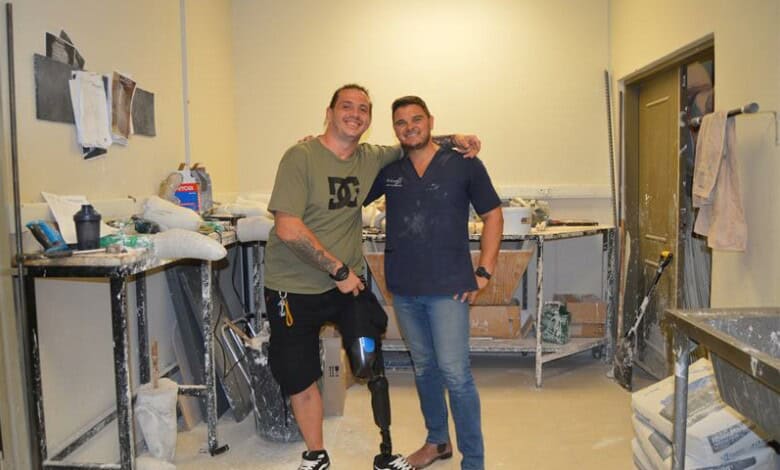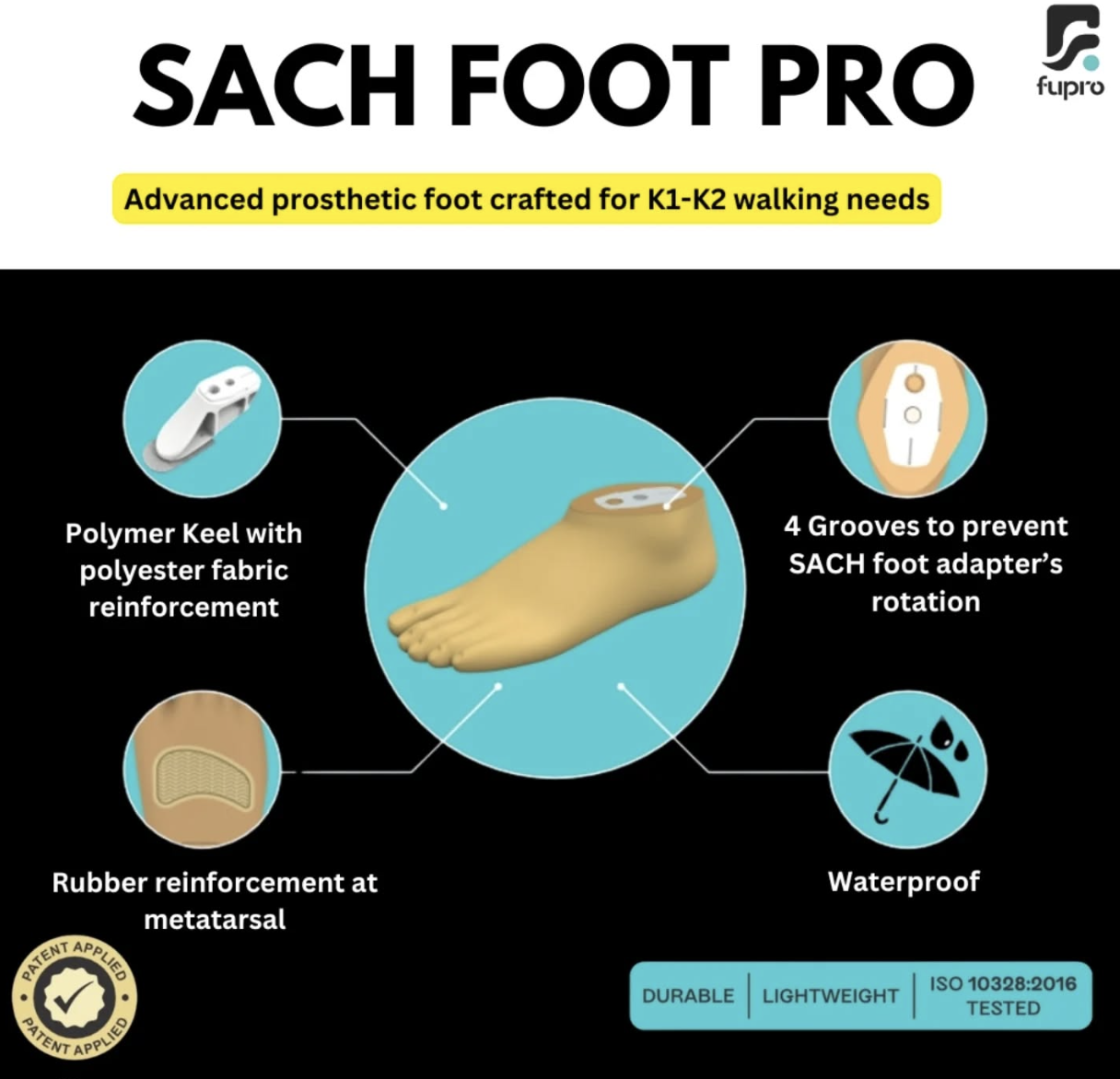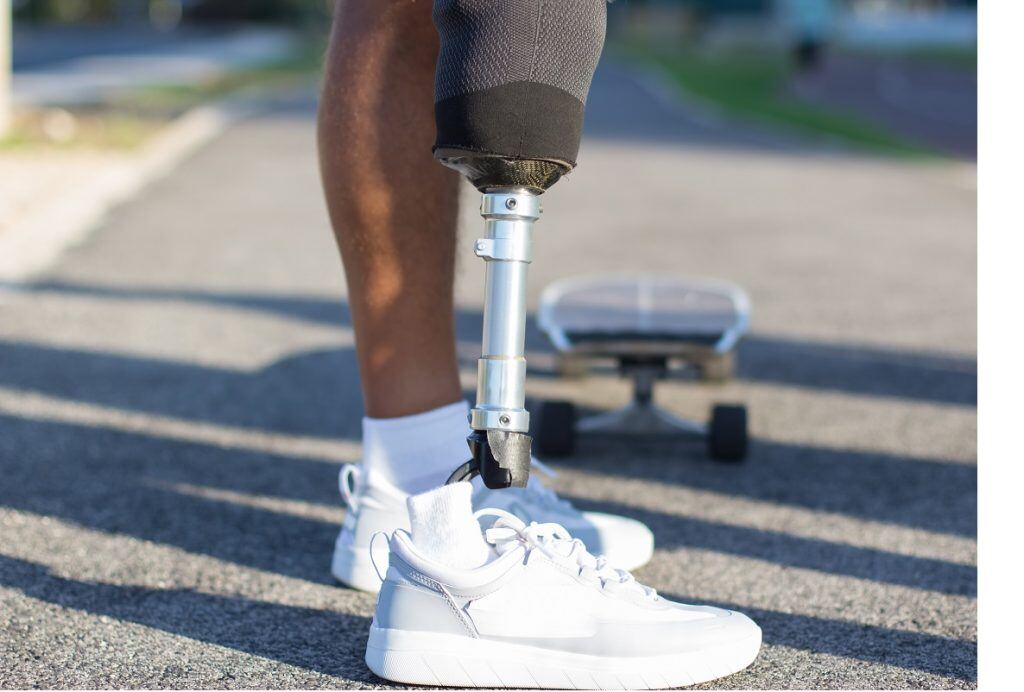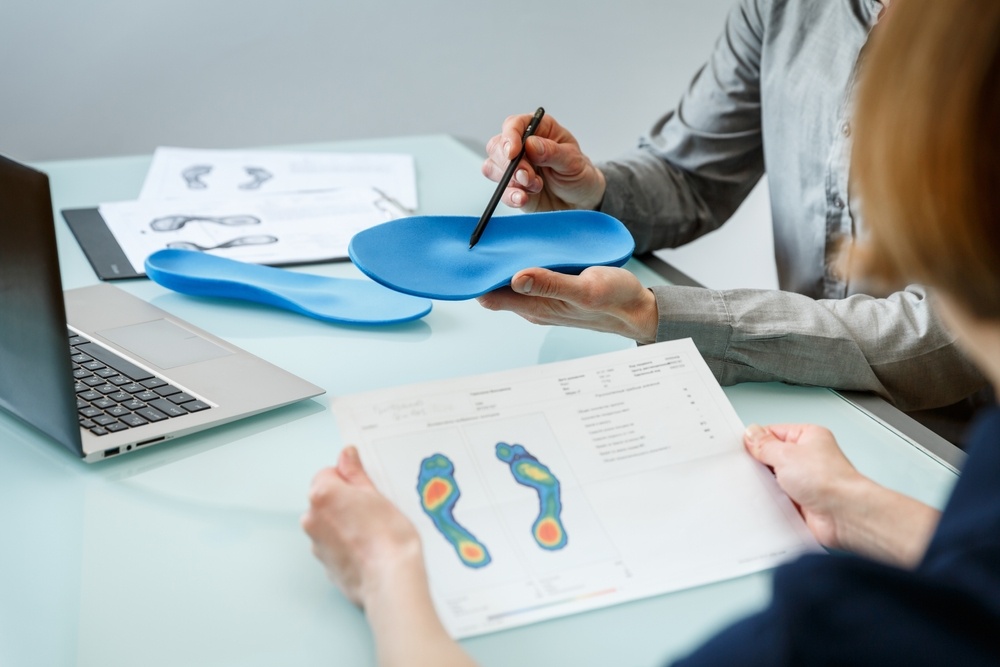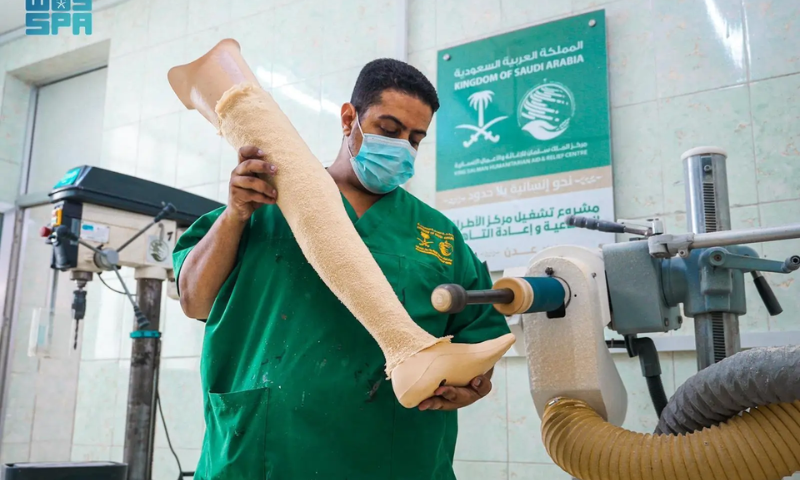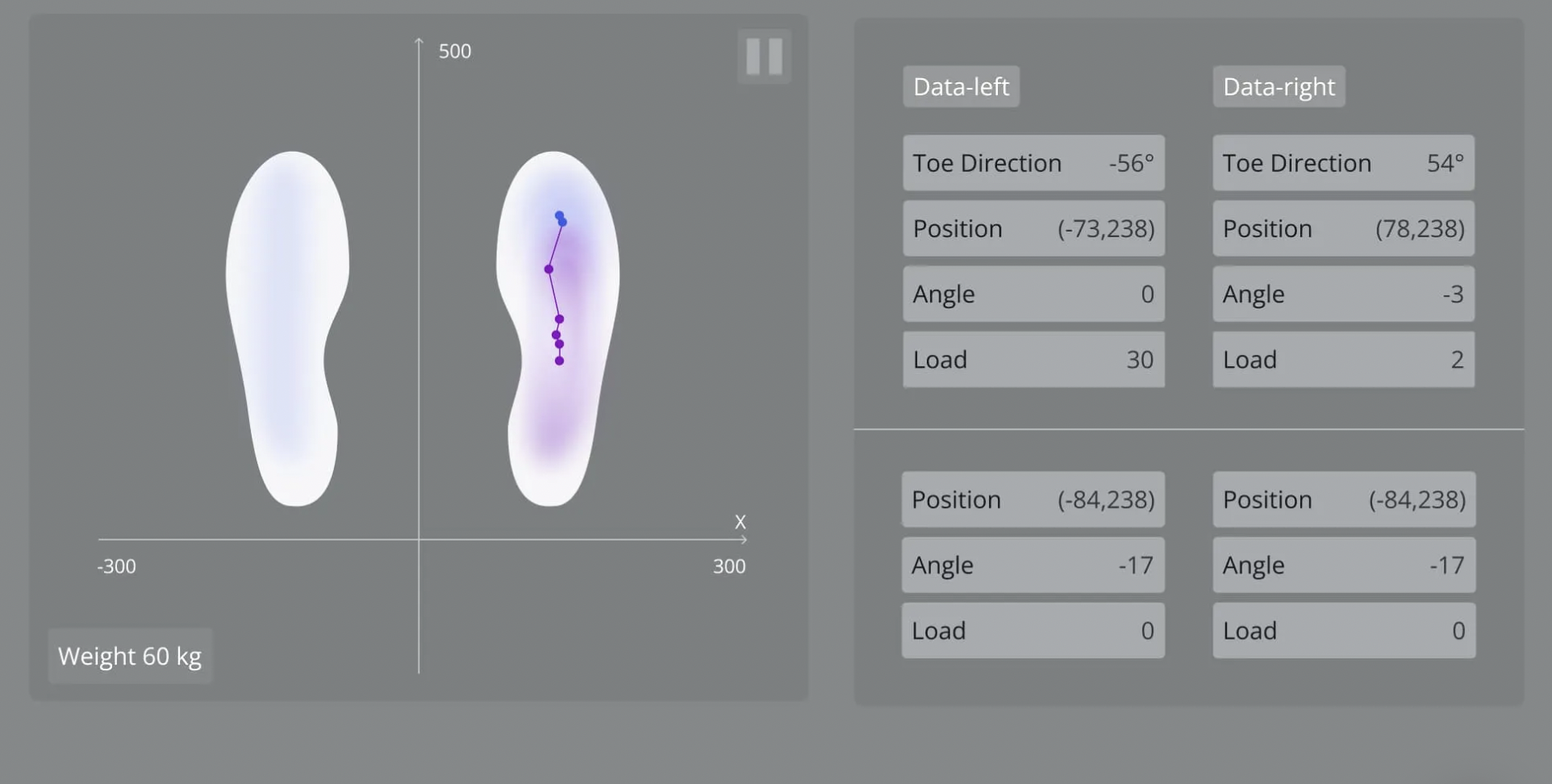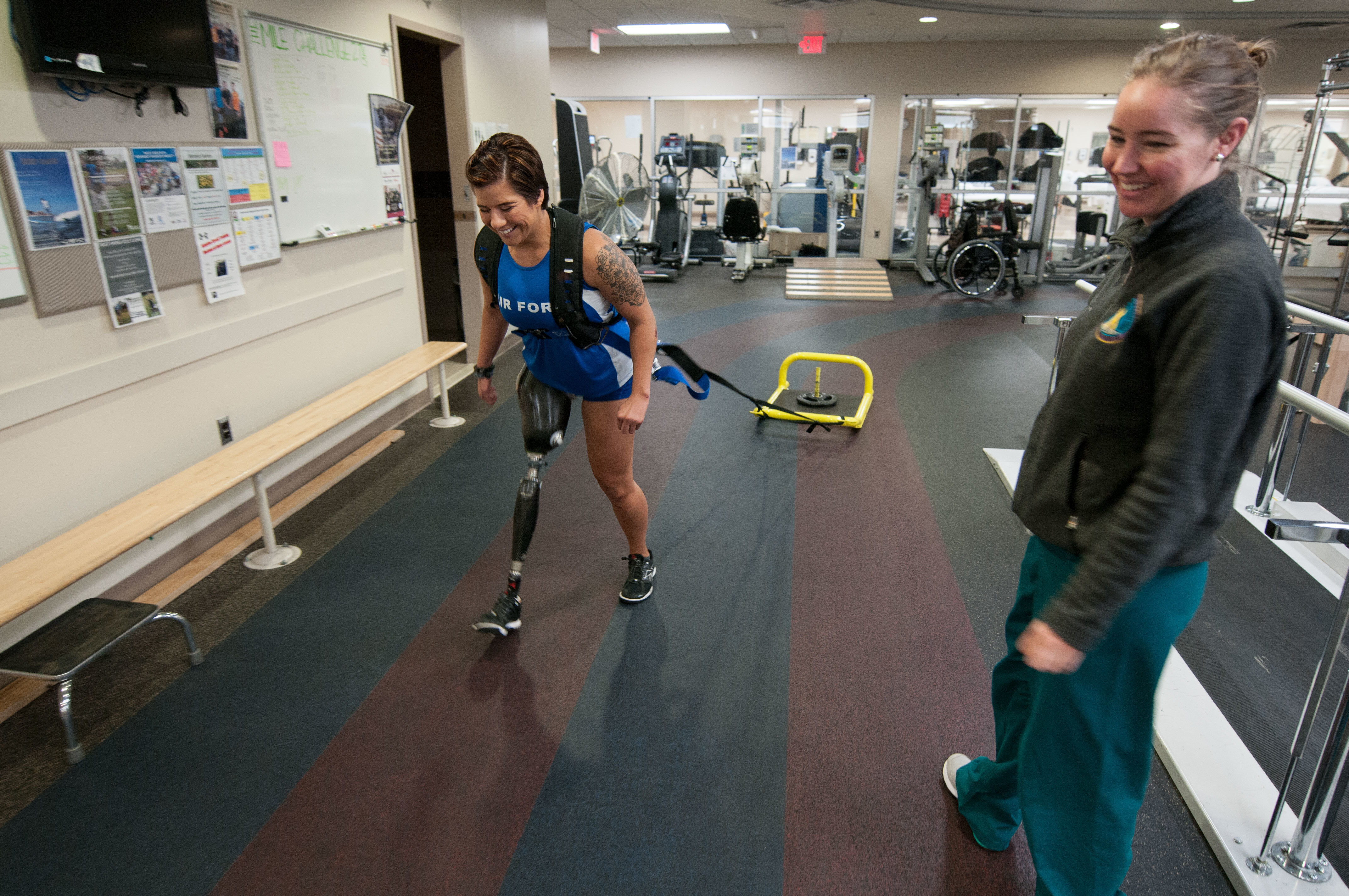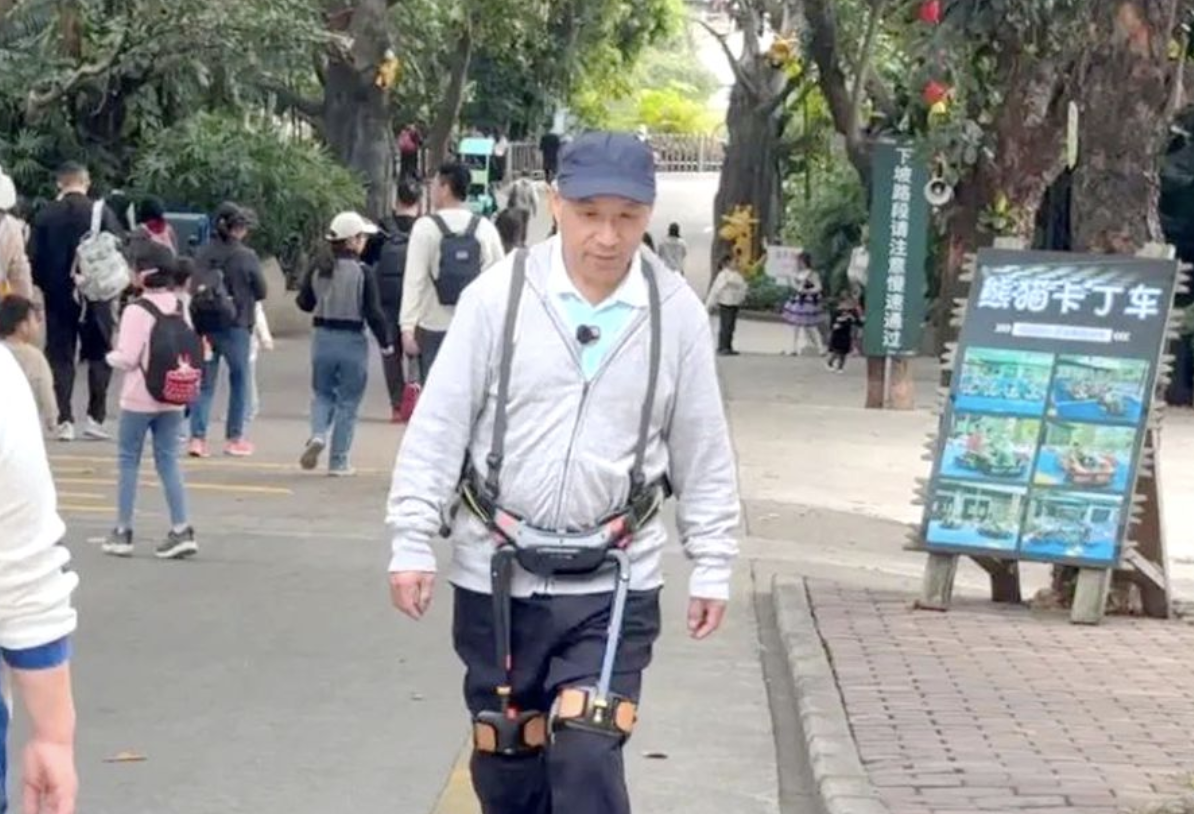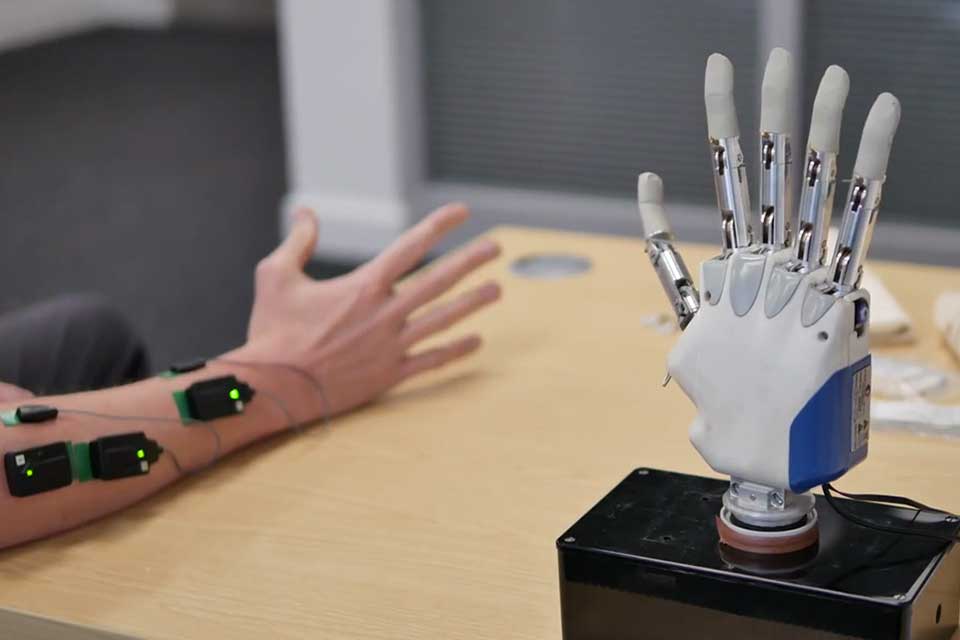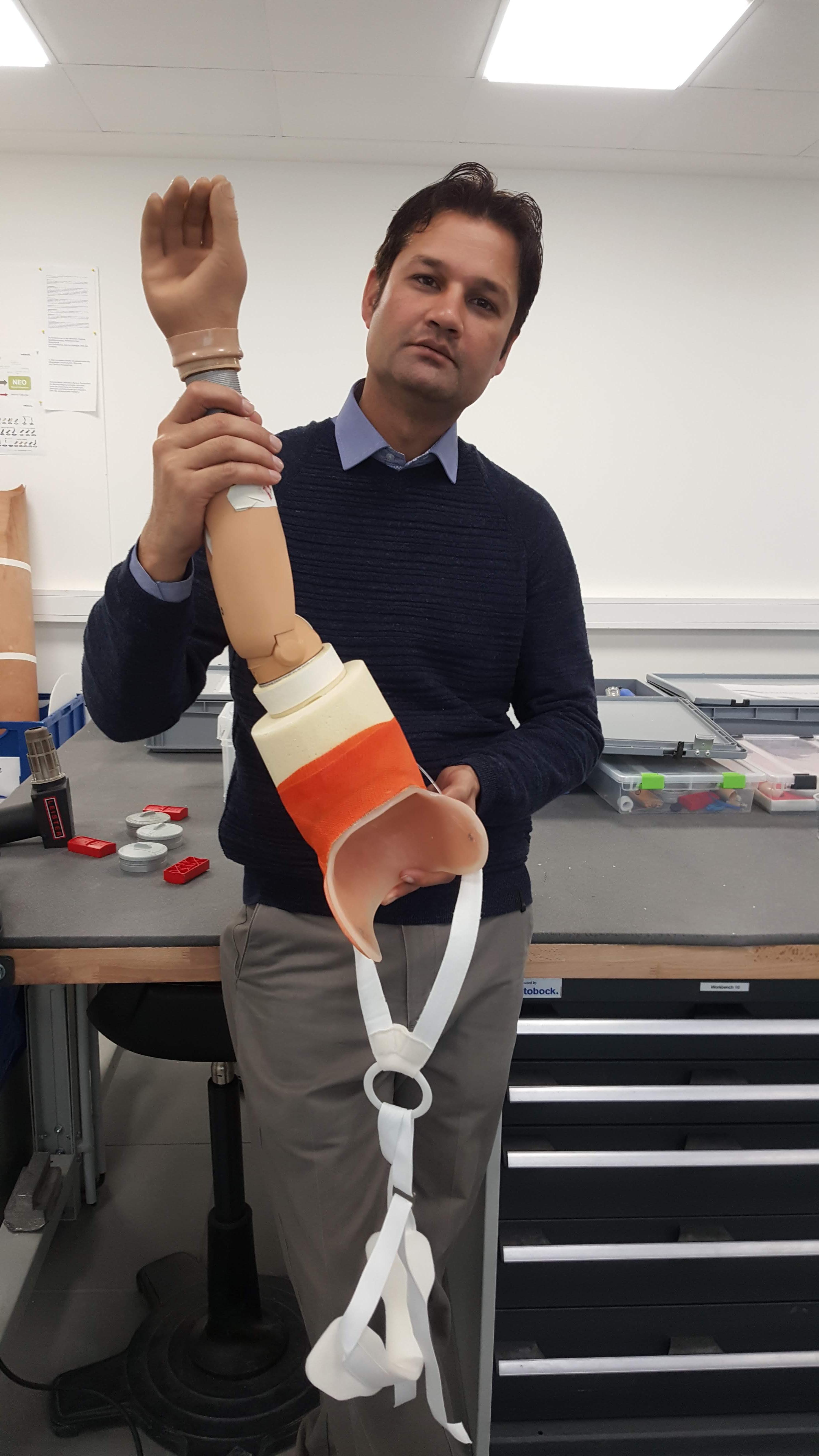A chance meeting between a prosthetist and his wife with a man whose legs were amputated below the knees has finally come full circle.
Henk Craig and his wife Karen were on their way to Tweefontein to visit a patient there when they encountered Simon Nthswane. They took his details with the idea of helping him one day.
Nthswane travelled all the way from his home town on November 11 to Craig’s prostheses clinic in the Parkview Centre in the east of Pretoria because Craig wanted to keep his promise.
“I wanted to see if we can change his life by helping him to walk again,” Craig explained.

After Covid-19, Craig prepared all the paperwork and got all the logistics in place to begin his Orthocross Amputee Foundation to help amputees like Nthswane walk again.
The non-profit organisation focuses on helping and changing the lives of amputees who don’t have the means or necessary funds to acquire prosthetics.
The foundation depends entirely on the generosity and compassion of organisations.
“It is my dream to help one amputee each day to walk again. I think the drive comes from the example my father, Jace Craig, was to me. He is a doctor in the Lowveld. He was always busy helping other people,” Craig said.
He has helped more than 20 amputees to date via the Orthocross Foundation. Previously, he often helped amputees out of his own pocket.
This however became unsustainable as the claims became too much for their budget and that is when Karen helped him to establish the foundation.
Together they both pull the strings. Karen is a former beautician from KwaZulu-Natal who now controls the fundraising and communication of the foundation.
Nthswane lost both his legs after gangrene set in due to diabetes. This father of four children had to spend eight years in a wheelchair.
“I would like to be able to walk again so that I can help other people with disabilities in Tweefontein coming to the foundation,” he said. Nthswane is a volunteer at the organisation.
When that day finally arrived, he was sceptical.
“We will have to see,” he said beforehand.
But for the friendly and enthusiastic Craig, no challenge is too big.
“You were our inspiration to start the foundation in the first place!” Craig told Ntshwane. He started taking measurements of Nthswane’s legs just before 10:00.

He explained that after an amputation the wound must heal entirely before the leg can be wrapped in stretch bandages to eliminate the swelling.
As soon as the wound is healed, the leg piece can be reshaped to the smallest possible measurement for effective fitting. This can take between two to three weeks. After this process is complete, the patient can be measured and plastered for the prosthetic.
In Nthswane’s case, the leg pieces had been ready for a long time and the measurement and fitting went quickly. Then Henk walked to his workshop and started making plaster moulds for the knee socket so that he could make the plastic cast later.
He had already made the leg and feet parts that would slide into the socket.
Nthswane’s new legs and feet parts as well, as all the other pieces for the other amputees were designed in America.
Here, former South African Lise Brink collects used or new components through her NPO, Stepping into Grace Ministries in Georgia, and sends it to the Orthocross Amputee Foundation to make the prosthetics.
Craig chafes away at the plaster cast to make it just right.
But first, he has to make a stop at the mall. He has to buy Ntshwane shoes to put on the prosthetic feet.
He asks Nthswane what his first pair of shoes in eight years must look like.

Amputees who cannot afford prosthetics are in a weak position, Craig said.
“A prosthetic like the one for Nthswane can cost anything between R100 000 to R150 000. If patients lose their limbs in an accident, they must wait five years before the road accident fund will pay out. At state hospitals, the waiting period for a prosthetic takes three years,” he explained.
After his leg and foot parts are ready at 14:00, Craig takes Nthswane to fit his new legs.
With the parts firmly in place, he encourages the still-unbelieving Nthswane to hold on to the rails of the exercising apparatus and to take his first steps in eight years.
The tears glisten in Nthswane’s eyes as his hands fold around the rails and he steps forward. The moment is too big for words for everyone watching with bated breath.
Now the other big task starts for both the patient and the prosthetist.
“When an amputee is fitted with a prosthetic, the work is thorough and an explanation follows of what should be practised to get a balanced walking pattern. Patients send videos to me every week from where they are walking so that I can give them advice if necessary.”
For Craig the support during this phase is significant. Apart from various other aid organisations or hospitals, the foundation offers personal aftercare service and the patients’ journeys are followed carefully.
“I believe in constant, positive communication between the prosthetist and patient to make the transition easier,” he explained.
“Loved ones must also be accommodating and patient.”
He would like to go a step further. “We would like to hand out food parcels to patients each month. Most patients at the foundation have little to no income,” he said.
For him, a support network after an amputation or fitting and wearing a prosthetic for the first time is also important.
“To keep the patient positive, a safe space must be created where they can talk openly about their trauma. It is an unbelievable adjustment to lose a limb, but it is not the end. With prosthetics in place, there are infinite opportunities and possibilities. The trick is to ensure that the patient gets to the right people to give them hope.”
Nthswane can attest to this, that his life was changed in just one day when he arrived back in Tweefontein late one afternoon. He has hope again.
“My wish is to help every amputee to get back on their feet. I realise God gave me the talent and passion to change lives and with enough funds for the foundation, it is exactly what Karen and I will do,” said Craig.
Contact Henk Craig on info@orthocross.co.za or 084 514 6800.
